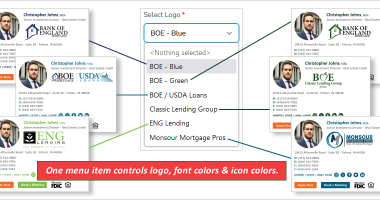
Still plugging your ears? Stop dismissing criticism and start seeing the value of online reviews.
June 20, 2019 6 min read
Opinions expressed by Entrepreneur contributors are their own.
Monitoring online reviews of your business can feel a bit like online dating: You’re opening yourself up to scrutiny. And what if no one likes you? What if they all laugh in your face (or at least your company’s)?
But reviews are vitally important for businesses, especially in an age when consumers are researching decisions more than ever. A recent consumer study conducted by Bright Local found that 86 percent of people polled said they read online reviews before frequenting local businesses. That figure is even higher among millennials.
Monitoring, responding to and embracing your online reviews will lead to an increase in sales. Consumers trust companies with positive reviews and want to purchase their products or services, according to the Bright Local study. Cultivating an active, positive review presence helps develop your SEO ranking, building your online reputation and searchability.
Why you shouldn’t fear online reviews
Actively monitoring reviews — good and bad — provides an opportunity to learn more about what’s important to your customers. Doing so will increase your brand’s credibility, help you maintain thought leadership in your industry and demonstrate that your company cares about customer feedback.
On the flip side, the consequences of avoiding or ignoring bad reviews could be serious for your brand’s online reputation. Think of negative reviews as opportunities for future positives. Similarly, bad reviews might help you uncover improvements you can make as a business owner to appeal to more customers or improve their overall experiences.
Negative reviews also enable you to be more proactive. They allow you as a leader to catch real problems early on and address them before they become major issues. Maybe a specific team member is being called out in numerous bad reviews — it might be time for more training.
Related: 6 Steps for Handling Social Media Complaints Like a Pro
Use online reviews strategically
Given the clear benefits of embracing customer feedback, it’s time to put yourself out there and start actively monitoring reviews. Here are four ways to start managing online comments to improve your reputation and boost sales:
1. Set up an internal process to monitor reviews.
A study published in the Harvard Business Review suggested that the simple act of responding to reviews results in better reviews. So, set up a system to respond quickly and authentically to both negative and positive reviews. Designate a person or a small team to monitor your online reputation. The most practical advice for monitoring reviews? Turn on notifications so nothing slips through the cracks.
When a customer posts a negative review, the person monitoring should immediately speak with a relevant supervisor to assess the situation before responding. Negative reviews often come from people who feel that their voices haven’t been heard, but sometimes reviews are written by people with bad intentions. As a result, it’s important to assess every negative review before answering.
It’s important to give any upset customer an opportunity to speak, so have someone of authority at your company reach out via a phone call or email to discuss why the customer is upset. Your goal should be rectifying the customer’s experience and helping him or her regain trust in your business. Sometimes, the upset customer will retract the review if you can successfully right the wrong.
Related: Who’s Managing Your Online Reviews?
2. Choose your monitoring platform wisely.
Companies have 39 Google reviews, on average, and almost 38 on Yelp. So, your trying to maintain a presence on every review site available can quickly become a full-time job. At this point, there are so many review sites that most companies don’t even know where customers are leaving reviews online.
Use a monitoring platform such as Birdeye, which combines reviews from multiple sources in one dashboard. This streamlined approach allows you to craft an appropriate strategy, track relevant metrics and receive notifications so that you never miss a chance to engage with consumers.
Look for the following functions in any monitoring platforms you’re considering: ease of use, functionality, the ability to compare to industry averages, the option to set and track goals, direct responses from the platform, easy integration and customer interaction tracking.
3. Reach out for reviews.
Actively reaching out for reviews by sending out targeted messages can incite conversations that lead to timely reviews and other forms of engagement. That engagement includes powerful word of mouth, which research by Convince & Convert Consulting found can influence 83 percent of consumers.
Through your review monitoring platform, you can trigger emails or SMS messages to people who have purchased or experienced your products and ask them to leave reviews. The platform my own agency uses has a feature that allows us to determine how many times — and when — to reach out to customers. The platform sends out an SMS message two hours after someone checks in to a certain location. It’s important to be organic and not intrusive when using SMS. Make sure your messages feel personal and human rather than robotic.
Test and analyze the results of this marketing tactic to determine the least intrusive time to ask for a review. What works for one company won’t necessarily work for another. Give yourself at least a month to gauge responses, and don’t be afraid to A/B test everything to determine the right strategy for your business.
Related: Chatter That Matters: 4 Must-Haves for Word-of-Mouth Marketing That Works
4. Keep great reviews close.
Positive reviews can be a great way to build momentum for engagement. Use them as an SEO anchor on home pages and sales pages, attaching them to content pages that inspire customer curiosity. Creating a pillar page on your site that houses online reviews and testimonials will also allow you to grow keyword authority and give a positive boost to your reputation.
Taking an active interest in customer reviews — and even empowering your biggest fans to drive a marketing campaign (the way luggage brand Away did last summer) — tells customers that they matter.
You might feel like you’re opening up a can of worms, but you need to take an active role in your company’s online reviews. Companies that don’t monitor and react to customer feedback will be left behind their competitors and miss out on potential customers. Develop strategies and processes to monitor how people are discussing your company online, and you’ll stay ahead of the game.
This article is from Entrepreneur.com








